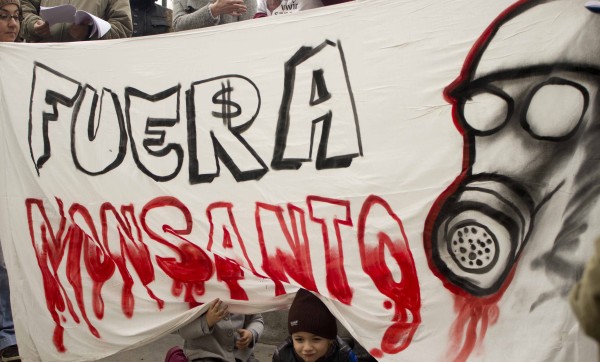Marches took place across Chile Saturday August 17 denouncing the multinational firm Monsanto because of its monopolisation and commercialisation of agricultural production. The big company accomplishes this through its efforts at pushing through legal structures on the patenting of hybrid and genetically modified (GM) plants and seeds and denying open access to the research by other’s of these largely unregulated genetic manipulations.
The long term effects of the consumption of the resulting products is not known as radical proteins, otherwise unseen in nature, are present in those final products and this poses doubts when their effects in combination with other elements has not been determined.
Not only that, the heavyweight and wealthy corporation forces legislation into channels that serve that corporation’s interests and that go against farmers using their own seeds to the extent that Monsanto has claimed compensation from ordinary farmers cultivating adjacent fields when wind dispersal of the Monsaanto GM seeds resulted in GM growth in those neighbours fields.
Participant in the march and Humanist Party member Sergio Bastías told Pressenza that the proceedings were lively and colourful and were played out in a highly festive march along the downtown streets of Santiago. Also present was the Humanist Party’s presidential candidate, Marcel Claude, who spoke to the crowd against Monsanto in the square of Maipu Municipality which lies to the west of Santiago – the city’s Central Market.
“Activities like this were held in many places across Chile,” says Sergio Bastias, “and they were self-managed and self-financed by various groups, and these groups did not result from any particular centre or obey any central instance – which is very consistent with the Humanist society to which we all aspire.”
It is also consistent with the way the Occupy Movement opens up its space!
Also present in the march were delegations protesting the action of the Chilean government against the Mapuche, which is particularly relevant because the type of monopolisation carried out by Monsanto hits especially hard on ethnic minority groups that rely on their own indigenous plants and seeds.
For a selection of photographs of the day see:










